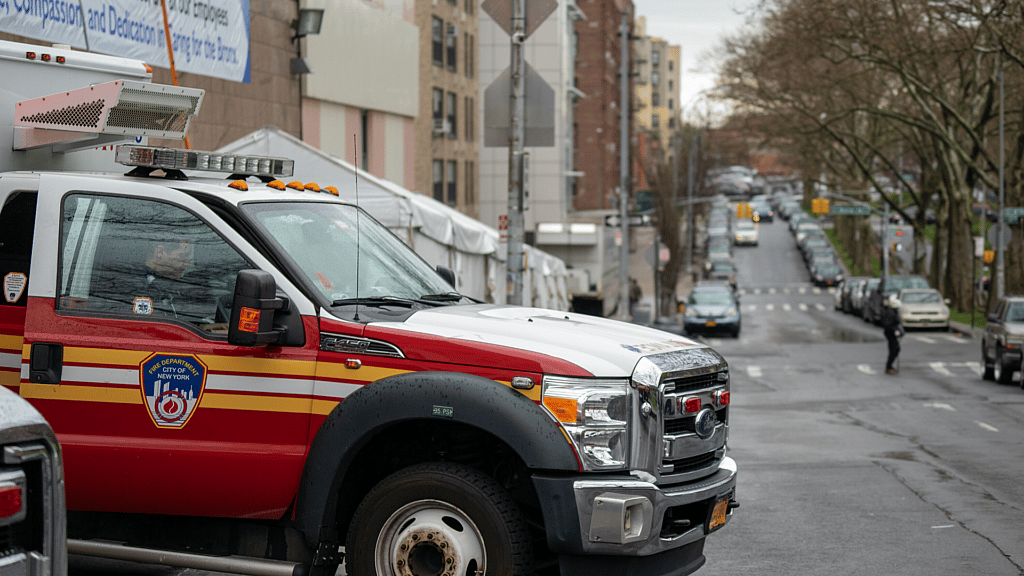The Metropolitan Police Department of the District of Columbia is making big changes to their department this summer.
The United States Capitol is the latest place to make changes to its police department, but they are not calling it police reform. Starting in June, police officers will no longer be first responders for certain mental health calls, according to The Washington Post.
Interim Director for the Office of Unified Communications, Cleo Subido, said the new initiative’s goal is to ensure they are not making “something more of an event by sending a uniformed officer there if they are not needed.”
Read More: Washington governor signs sweeping police reform measures
She adds: “some kind of a situation where there’s a distrust of law enforcement, or distrust of the fire department, or of strangers,” sending police “could be doing a disservice.”
The city’s police reform commission recommended change last month in the wake of George Floyd’s killing. The goal is not to stir up police brutality. However, the city is not calling the move police reform; instead, the pilot program is recognized as simply providing better service. For example, about four years ago, a program launched diverting calls to nurses for non-emergency health conditions. Subido said, “This really mirrors that.”

The program will go through a six-month trial and will operate between 6 a.m. to 6 p.m. The goal is to expand the hours to 24/7 in 2022 and reroute 911 qualifying calls to mental health services.
The D.C. Department of Behavioral Health “works very closely with the Metropolitan Police Department,” said its director Barbara J. Bazron. The office also assists in training officers on how to address mental health crises. She said the overall goal is to “get the best, most appropriate care.”
Her office handles psychiatric emergencies and drug overdoses but they are aiming to connect those calls through 911.
D.C. receives about 90 calls a day in regards to mental health, according to Subido. She hopes about 25 of them will be pushed through the new program. Experts say the success of the program depends on how “danger” is interpreted.
“The norms that develop likely will be as important as the words in the policy,” said co-chair of the reform commission and a former Justice Department official, Christy Lopez. “It will require good training and leadership.”
Read More: Washington Post reporters’ records secretly obtained by Trump DOJ: report
As reported by theGrio, other states around the country are implementing similar programs.
According to USA Today, Eugene, Oregon, Olympia, Washington, and Denver have the only existing non-police responder programs in the United States, however, more strategies and plans are being developed in various locations.
The outlet cited growing movements against police brutality and nationwide calls to defund the police as motivating factors. A June 2020 survey found nearly 8 in 10 voters support routing 911 calls related to mental health and substance use to trained, non-police responders but the programs are not all brand new.
In Eugene, the civilian response program has existed for over three decades. According to USA Today, the White Bird Clinic, a health care center in the city, launched the Crisis Assistance Helping Out on the Streets program in 1989.
Abbreviated as CAHOOTS, the program sends a team that consists of a medic, usually, a nurse, EMT or paramedic, and a crisis worker. This team takes calls relating to mental illness, homelessness, and addiction.

USA Today reported in 2019, responders requested police backup only 150 times out of an approximate 24,000 CAHOOTS calls.
“The work they’ve been doing is both pioneering and successful,” said Betsy Pearl, associate director for criminal justice reform at the Center for American Progress, according to the news outlet. “The major objection or concern you see is from folks who say this isn’t safe. But from what we’ve seen play out, that isn’t true. In Eugene, there’s never been a serious incident.”
Additional reporting by DeMicia Inman
Have you subscribed to theGrio’s podcast “Dear Culture”? Download our newest episodes now!
TheGrio is now on Apple TV, Amazon Fire, and Roku. Download theGrio today!

